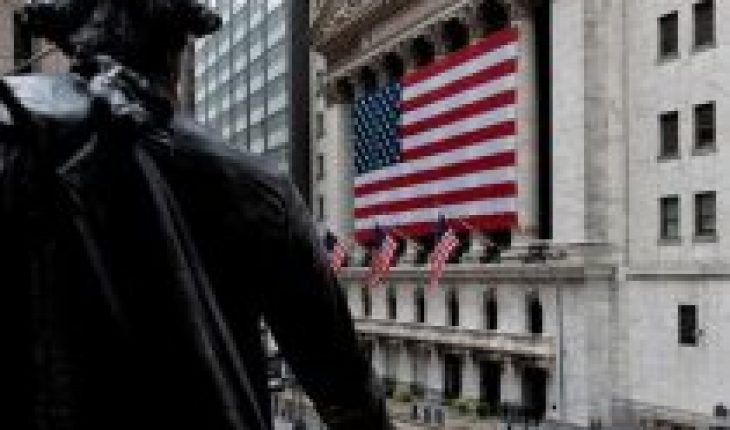
Wall Street has long had only two concerns regarding the upcoming U.S. presidential election. Some feared a chaotic handover of power, if U.S. President Donald Trump lost and questioned the outcome. Others feared a victory for Democrats, who with their strict economic policies could jeopardize the valorization of American actions.
All this time, the only desirable setting for Wall Street seemed to be Trump’s re-election. After all, its impact on markets has been quite impressive. The S&P500, the largest and most important benchmark in the United States, has risen 50 percent since taking office, despite the pandemic. The Dow Jones and Nasdaq also consistently set new records.
The U.S. economy, however, still suffers from the effects of the crisis. Trump doesn’t have the coronavirus under control, nor is there a second stimulus package in sight. So now it’s not just voters who seem to get further and further away, as polls show. U.S. investors have also long since withdrawn their support for Trump.
All this time, the only desirable setting for Wall Street seemed to be Trump’s re-election. But that changed.
Investors change their minds
“Markets are currently not only betting on Biden, but they even expect a win for Democrats,” says Nigel Green, founder and director of The Financial Consulting Firm ofVere Group. For Wall Street, essentially conservative, this is a rather unusual change of heart. Biden promises billions in investments in the U.S. economy, but at the same time insists on higher taxes and more regulation. “A Democratic victory usually means negative consequences for markets, but nothing is normal these days,” Green says.
Stability and security is what investors need now, says Chris Myers, chairman of financial advisory firm Signum Global Advisors. “People are just exhausted,” the financier tells the NPR radio station. Stock exchanges may have reached historic new highs, but Wall Street is upset with Trump’s leadership style.” It is difficult to make medium- and long-term decisions about capital allocations, when it is not known what is next for the White House to decide.”
Investors crave the so-called blue wave, the blue wave: a scenario in which Democrats would not only reclaim the White House, but also the Senate. This would get the whole congress in your hands. Economic policy decisions, such as the adoption of a second billion-dollar stimulus plan, would accelerate.
For the sake of a sustainable economic recovery, according to Green, investors are now even willing to accept tax increases and significantly stricter regulation. A more reliable policy and a cooling of the trade dispute with China could even offset the burdens. In addition, Biden’s infrastructure package and increased government spending in general should ensure that the economy and therefore the corporate results of many companies recover. This could only translate into a long-term stock valuation.
In fact, Deutsche Bank experts believe democrats’ victory is the most likely election outcome. Therefore, investments in cyclical stocks, i.e. stocks that benefit from an economic recovery, are currently rising on Wall Street. While stocks and technology bonds continue to lose strength, interest in sectors such as renewable energy, building materials and industrial stocks is increasing significantly. All of these sectors should benefit from a Biden president, who promises higher environmental standards and massive investments in U.S. infrastructure.
The stock market expects Democrats to not only provide the new president, but also regain the Senate.
Financial elite donate to Biden
Wall Street doesn’t save a penny to support Biden. Donations from the financial elite to the election campaign have rarely been as high as this year. For the first time in a decade, banks, investment firms and the like poked deeper into their pockets for Democrats than for their Republican competition. This is noteworthy simply because, among all sectors, the financial sector stands out as the largest political campaign funder.
According to the Center for Responsive Politics (CRP), financial companies have donated $265 million to Democrats since the beginning of the year, nearly $100 million more than Republicans. “The financial sector is generally considered a reliable source of money for the Republican Party,” explains Sarah Bryner, director of research and strategy at the Center for Responsive Politics. “In this cycle, however, the trend has reversed.”
It may also be personally up to Joe Biden for Democrats to enjoy so much financial sector support today. From the beginning of his political career until 2009, the now 77-year-old Democratic presidential candidate represented in the Senate the interests of the state of Delaware, known for its pro-business fiscal policy. It made a name for itself as a lobbyist for financial institutions and credit card companies. “Delaware has a lot of big Wall Street companies that Biden has sex with and trust,” says research director Bryner. And just that’s why Trump gave his Democratic rival the nickname “Quid pro Joe.”





